About us
The Centre for Forest Protection is a Defra-funded collaboration, led by Forest Research and Royal Botanic Gardens, Kew.
The Centre for Forest Protection (CFP) was launched in May 2022 with a mission to enhance the resilience of the UK’s forests, woodlands, and trees and protect them from environmental and socioeconomic threats, through the provision of evidence, interdisciplinary research, expert advice, and training.
The CFP is led by Forest Research and Royal Botanic Gardens, Kew and brings together tree health expertise from across the UK and the rest of the world.

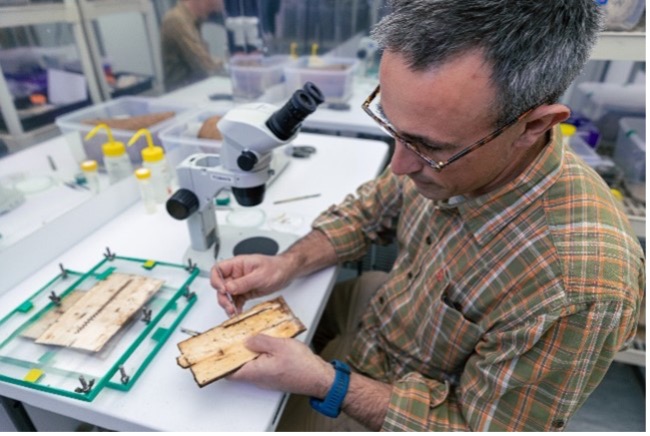
The main aims of the CFP are to:
- Support government strategies: actively collaborate with government bodies to ensure forest and tree planting programmes are effectively established and aligned with national goals.
- Improve resilience: support the ability of British forests to withstand environmental and socioeconomic threats by promoting research on tree health and resilience.
- Build capacity: foster the development of future generations of tree health scientists through training, research opportunities, and knowledge sharing.
Forest Research
Forest Research is the research agency of the Forestry Commission and Great Britain’s principal organisation for forestry and tree-related research. It is internationally renowned for the provision of evidence and scientific services in support of sustainable forest management. The work of Forest Research informs the development and delivery of UK Government and devolved administration policies for sustainable management and protection of trees, woods and forests.
As part of the wider Department for Environment, Food and Rural Affairs (Defra), family, the Agency will help to deliver Defra’s Strategy, A Green Future: Our 25 Year Plan to Improve the Environment which sets out a shared vision for the Defra group.

Alice Holt Research Station, Forest Research (C) Forest Research/Nick Moody
For more information visit: www.forestresearch.gov.uk
Royal Botanic Gardens, Kew
The mission of the Royal Botanic Gardens, Kew is to understand and protect plants and fungi for the well-being of people and the future of all life on Earth. Our aspiration is to end the extinction crisis and to help create a world where nature is protected, valued by all and managed sustainably. In partnership with our global network of collaborators, we work to understand, protect and restore biodiversity at taxonomic, genetic, functional and ecosystem levels, and at all spatial scales. Our expertise contributes fungal and plant knowledge to partnerships aimed at safeguarding all biodiversity, and our exploration of the useful properties of plants and fungi provide significant benefits to society.
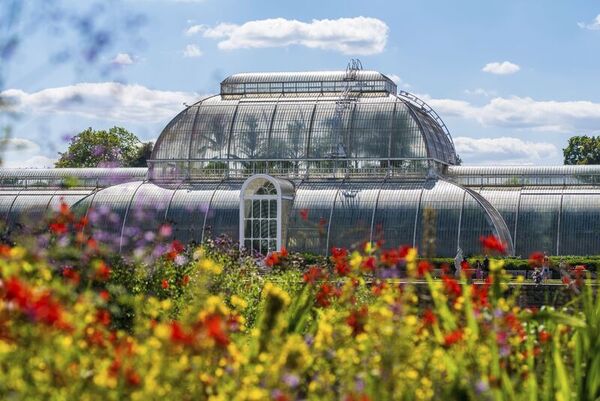
Palm House, Royal Botanic Gardens, Kew (C) RBG Kew/Ines Stuart-Davison
For more information visit: www.kew.org/science/
Why protect?
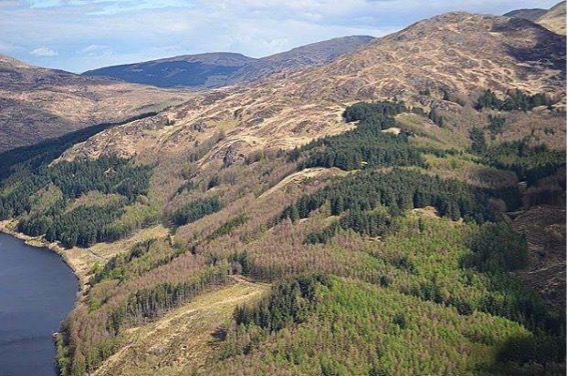
Forests, woodlands and trees provide a vast array of environmental, social and economic benefits. Of particular importance is the critical role of forests and woodlands in addressing climate change and biodiversity loss. However, the threats to woodland and trees from pests and diseases are real and increasing.
New planting programmes
There are 3.2 million hectares of forests and woodland in the UK, which cover 13% of our land area. Although woodland cover is increasing, this figure remains much lower than the European average.
The governments of the UK have embarked on ambitious tree planting programmes to significantly increase woodland cover. For example, England aims to reach at least 12% woodland cover by mid-century, contributing to net zero greenhouse gas emissions.
The UK’s conifer and broadleaved woodlands will be managed both for environmental and social benefits, and as a sustainable source of timber and wood products, which will see increased demand as part of our transition to a green economy.
The new planting programmes come at a time when our woodlands and trees are under increasing threat from novel pests and diseases and the impacts of environmental and land-use change. These threats are complex and interrelated, and compounded by the effects of the changing climate that we are already experiencing.
Tree health expertise
Planting and establishing the right tree in the right place will get the most out of our trees and woodlands for society, the environment and the economy. There is a government commitment for more diverse forests and woodlands that are better designed and managed to ensure they are resilient to threats. We need to understand how to create and manage these natural capital assets in order to protect them from environmental stresses, including pests and diseases.
To support these aims, the UK Government is now bringing together the best tree health science and expertise from Forest Research and Royal Botanic Gardens Kew, to lead a collaborative platform that will take a holistic and future-focused approach to identifying and countering existing and emerging threats.
The new Centre for Forest Protection will work to protect the future of our forests, woodlands and trees from environmental and socio-economic threats, through the provision of innovative science, interdisciplinary research, expert advice and training. The combination and use of the strengths of both organisations will deliver much-needed additional capacity and capability to meet new and existing challenges.
Phase 1 of the Centre for Forest Protection (2022-2025)
Between 2022 and 2025, Defra contributed over £5 million to support a range of research projects, including 4 PhDs and 17 internships. Projects focused on novel approaches to tree health, and strongly encouraged international collaboration.
The funding also supported the developed of a new MSc Forest Protection module in collaboration with Bangor University, and a suite of new professional and technical training modules. For more information, please see Centre for Forest Protection – Education Programme.
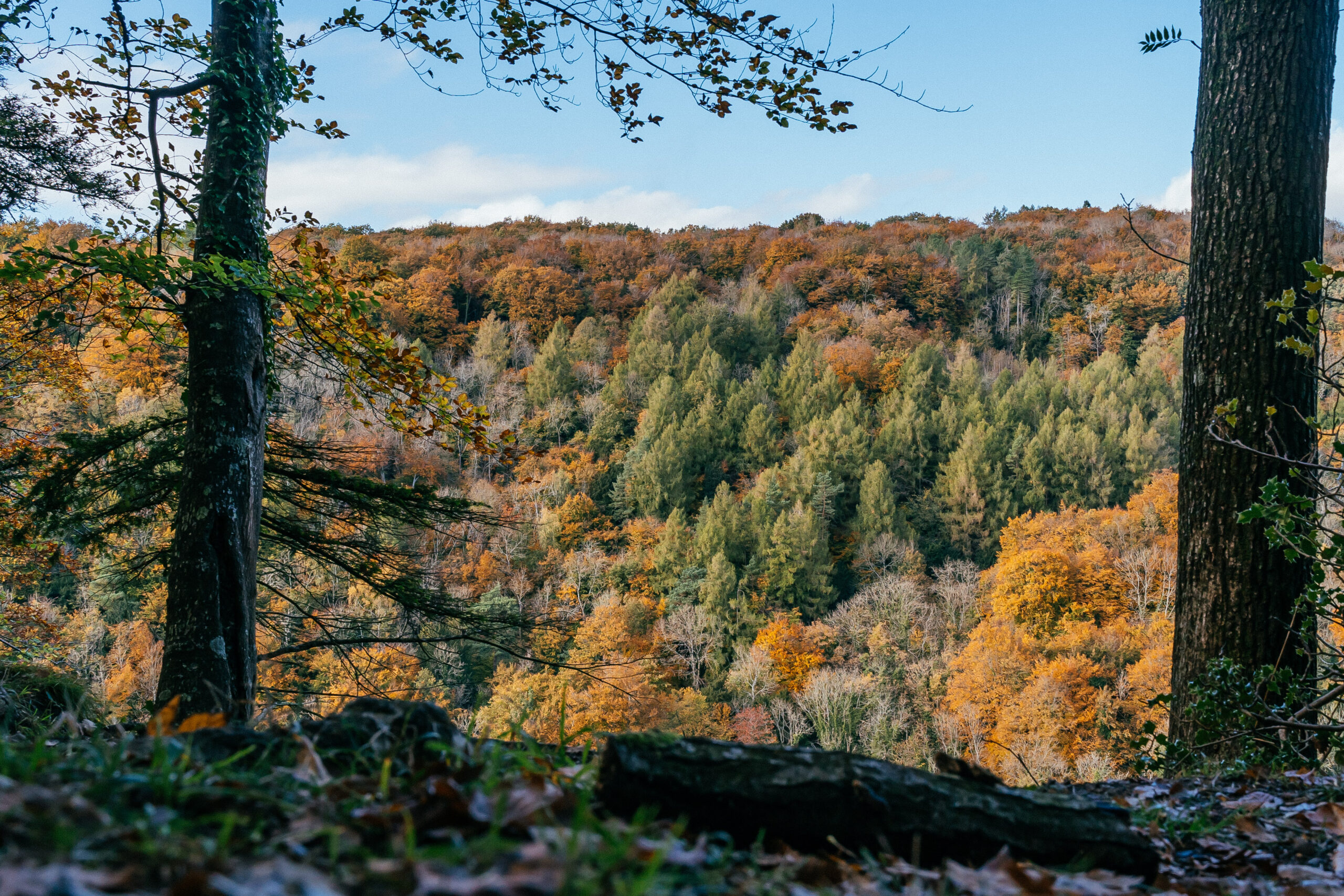
Pilot & Phase 1 Projects
Pilot Projects:
- Horizon scanning for tree health
- Developing biological control mechanisms for sweet chestnut blight
- Consolidating and curating datasets for ash genomics*
- Scoping multi-species genotyping for genome-environment association study*
- Using phylogenetic relationships to predict susceptibility of tree species to pests and pathogens*
Phase 1 Projects:
- Understanding the genetic basis of silver birch adaptation to local environments and disease
- Reassessing the threat posed by pinewood nematode to UK forestry (PhD Project)
- Predicting risk to non-native trees species from potential threats in the UK
- Mapping attitudes and cultural connections to lost tree species and their restoration (PhD Project)
- Infusing Dothistroma needle blight resilience into the Scots pine breeding population*
- Identifying proxy measurements for drought tolerance in Sitka spruce
- Transforming ash genomics: a pan-genome resource for improved understanding of ash dieback resistance*
- Mapping the distribution and diversity of UK elm
- Evaluating genetic and environmental bottlenecks in planted and naturally colonised woodlands*
- Assessing genetic susceptibility to acute oak decline
- Abiotic predisposing factors for pests and diseases spatial risk modelling
- Understanding grey squirrel damage in UK woodlands* (PhD Project)
- Assessing the potential impact of Xylella bacteria on UK trees (PhD Project)
*Further research undertaken in Phase 1 and/or Phase 2.
Phase 2 of the Centre for Forest Protection (2025-2028)
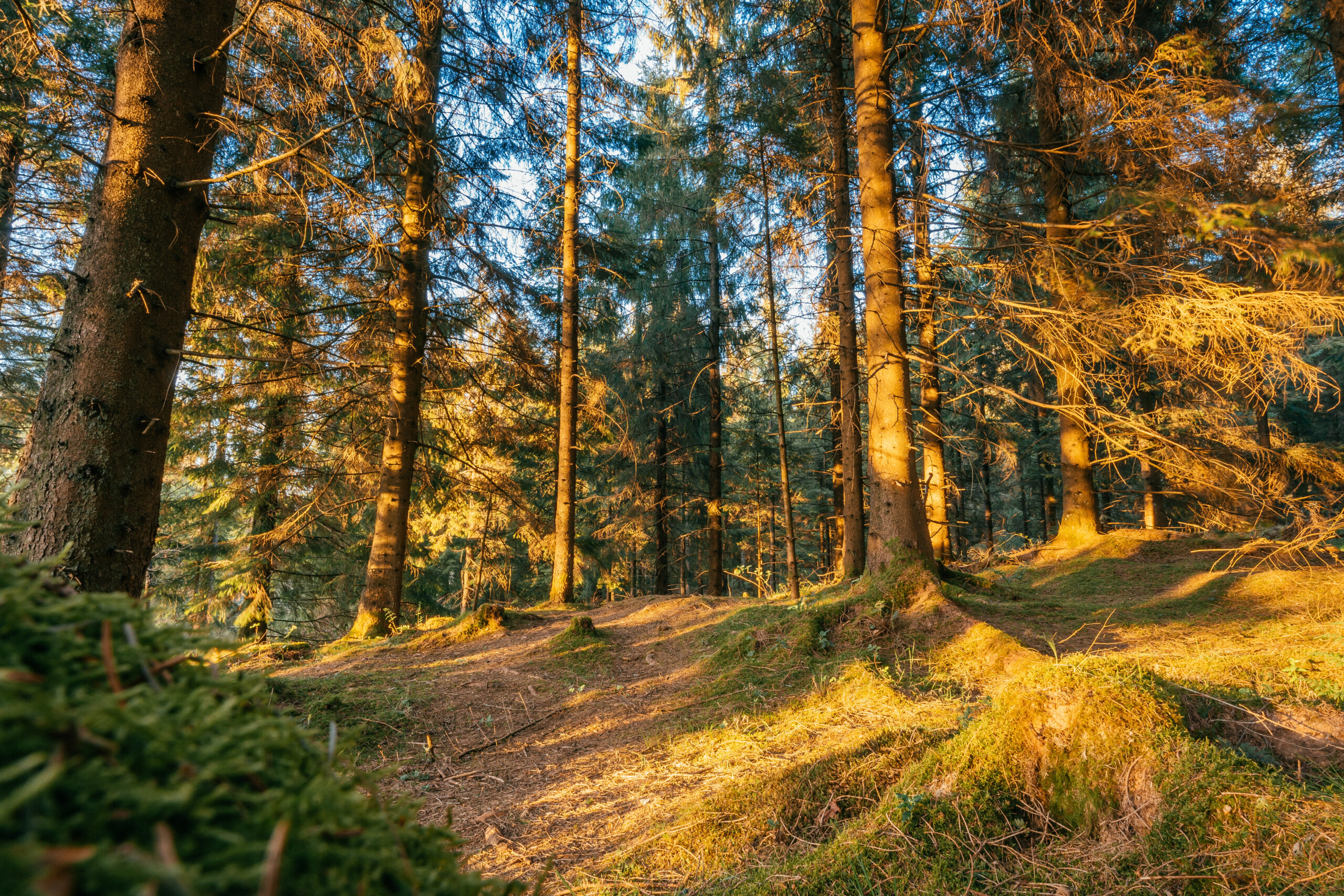
In 2025, Defra awarded a further £4 million of funding to the Centre for Forest Protection to facilitate 17 new research projects.
The Phase 2 projects will help plant and protect treescapes that are resilient to stressors including climate change and pests and diseases such as ash dieback.
Phase 2 Projects
Phase 2 Projects
- Dodging the double whammy – ash dieback and emerald ash borer
- Knowledge synthesis: How trees evolve under novel conditions (webpage coming soon)
- Sustainable provenancing for resilient trees*
- Investigating ash health genomics after long-term ash dieback exposure*
- Researching complex yew decline
- Applying dendrochronology for genomic resilience*
- EXPLORATION: Mixed species planting for drought adaptation
- Enhancing forest resilience through stand structural complexity
- Infusing resilience into the Scots pine genetic resource*
- Detecting and understanding oak shake
- Speed breeding technologies for UK broadleaved trees
- Forest Sector Modelling – Risks and Resilience
- Understanding grey squirrel bark stripping*
- Farmer action for tree resilience
- Innovating remote early detection and response to tree disease
- Understanding wind storm risks in continuous cover forestry
- Investigating Scots pine resilience
*Building on research from Phase 1.
Meet the Centre for Forest Protection Team
Science & Research
Our science programme will support the UK governments' forest and tree strategies and the successful delivery of tree planting programmes. Research outcomes will also directly contribute to the improved resilience of the UK’s forests, woodlands and trees and help promote enhanced capacity and capability in forest and tree health research.
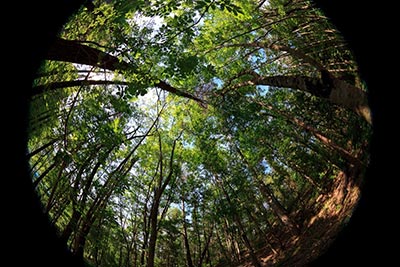
Knowledge Hub
A key priority for the Centre is knowledge exchange and ensuring that research outputs are shaped by stakeholder engagement to increase their relevance and impact. Part of this will be working with stakeholders to create a knowledge hub to promote the sharing of evidence, expertise and best practice that can help promote the resilience of forests and woodlands.
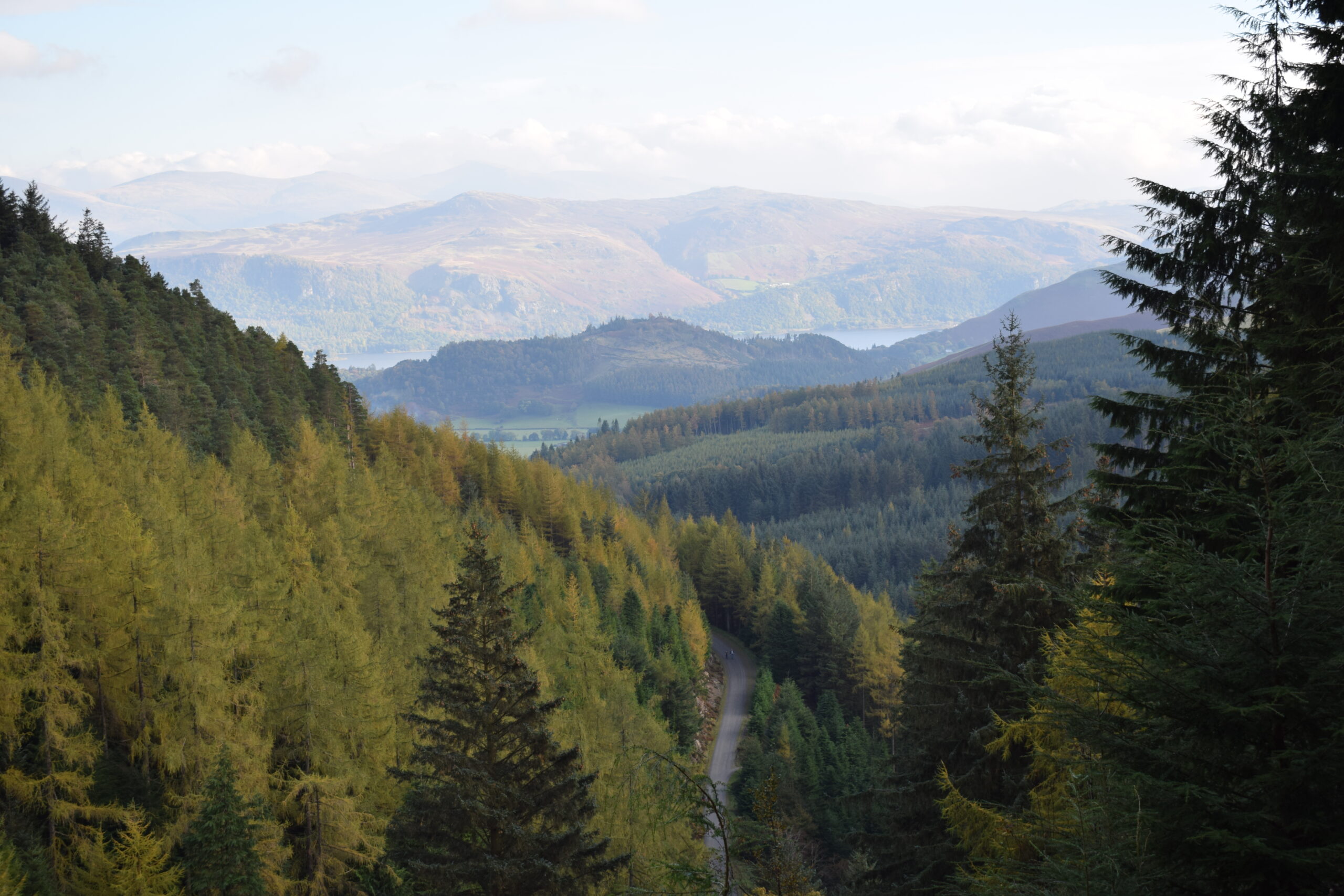
Our Partners
Social media
Explore
Newsletter
Contact
© 2026 Centre for Forest Protection. All rights reserved.




